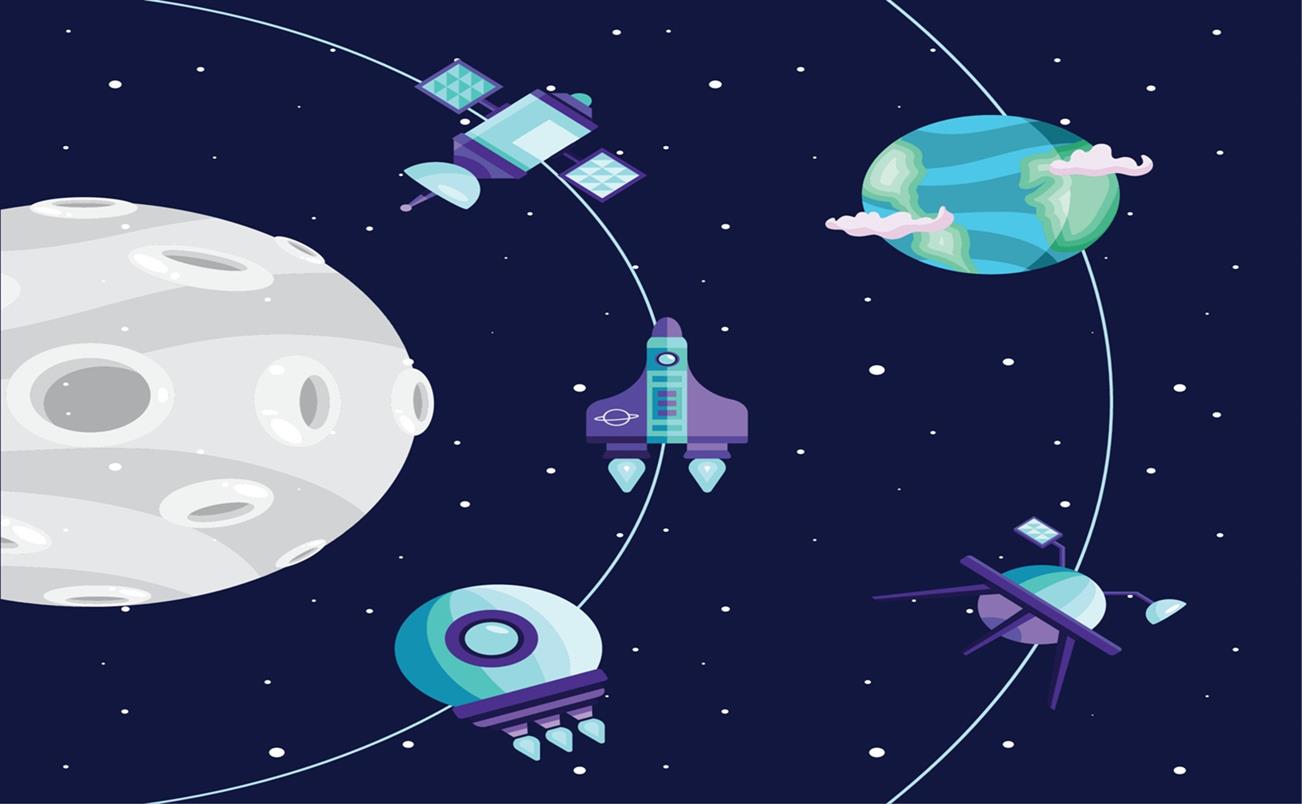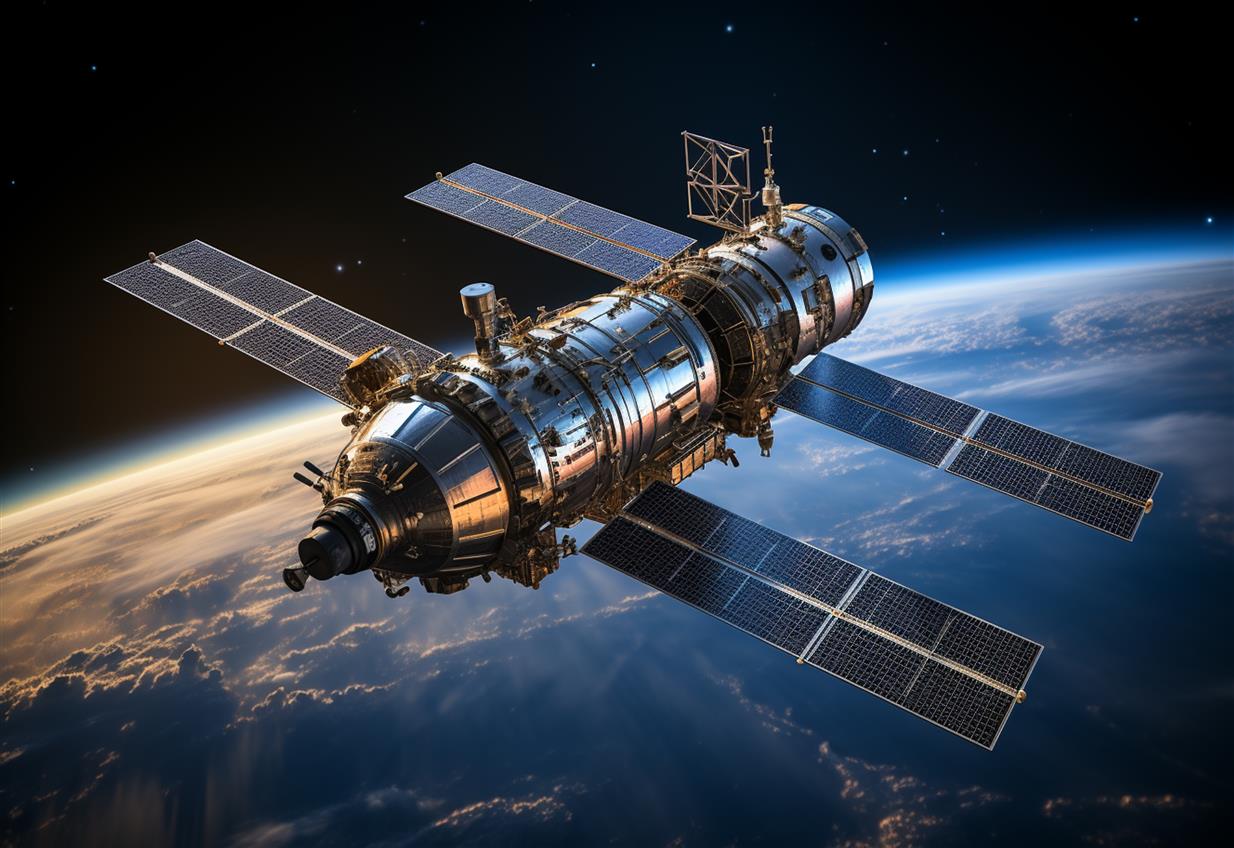## Introduction
At the heart of the rapidly evolving digital world, the blockchain, which is not only a breakthrough technology but also an industry game changer. Its applications do not stay limited to its association with cryptocurrencies and start extending beyond this. Space is a discovery hub where blockchain is evolving as one of the actually promising fields. In this article, we shed the light on how blockchain is being merged with space technology, study the newest achievements, analyze the data, and introduce some unusual facts about the application. By the end, you should get a clearer understanding on blockchain-space tech synergy.
## Blockchain Basics: Innovation As a cornerstone.
Therefore, before we dive deep into the intricacies of space technology, let's quickly review blockchain technology basics. The blockchain is the one decentralized ledger of all the transactions directory of a network. *ICT* stands for Information and communication technologies, which provides secure and transparent data recording with their non-interferable and traceable features. The main qualities are decentralization, transparency and immutability putting it in institutions which use information with maximum integrity and security.
Source -Vecteezy## The Modern Situation with Blockchain in the Improvement of Space Technologies
The introduction of blockchain to space technologies is not only theoretical in nature but is also an ongoing reality with the involvement of many entities around the world. *NASA,* for instance, has been in front position of the others, especially using the blockchain, which aims to make satellite communications more secure in association with main universities. Blockchain innovation is used as a tool to control the enormous amount of data safely and swiftly, and also makes sure that spacecraft interacting with one another are connected properly.
### Securing Satellite Communications
The blockchain is a good fit for providing security in satellite transmissions because of the immutable characteristics. The property of blockchain to preserve an immutable ledger works against such threats like interception and distortion of the earth's orbit data which is being transmitted from satellites to ground stations.
### Increasing the Data Reliability and Integrity
Blockchain as a tool for verifying the integrity of data is of great importance, for instance, when handling classified data obtained from space. Each block of data is linked and encrypted through cryptographic principles, which prevent any data that is already in the network from being changed later without all network participants agreement.
Source -Vecteezy## Blockchain technology and decentralized decision-making in space missions is the current trend.
Blockchains’ unique decentralization feature also provides a new approach for management of activities during space missions. Through the use of smart contracts, spacecrafts and satellites would have the capability to make autonomous decisions based on pre-established conditions without relying on constant communication with Earth. This is especially efficacious in deep space voyages where the communication delays are very significant. The blockchain is distributed which means that all data is entered and stored permanently making history of the mission transparent and reliable.
### Increasing the Security for Space-Exploration Data
When it comes to the safety of data in space exploration, there is no underestimation of the importance it has for national security, scientific research and commercial interests. Blockchain technology gives us a secure framework to store and transmit data making it impossible to introduce unauthorized access or alter the information. Indeed, as space voyages get more and more commercialized, that feature of blockchain will become even more pronounced.
### Innovation Through Blockchain-Based Partnership Platforms
The blockchain technology encourages collaboration through secure and transparent sharing platforms. These platforms can be for the support of space agencies, research organizations as well as private companies in the sharing of their findings and innovations. Hence, the rate of the making of space technologies and discoveries can improve. Such platforms can also be more conducive for crowd-sourced space missions which can then lead to more private sectors and individuals to participate in space missions.
Source -Vecteezy## The force of revolution of emerging blockchain-supported space technologies.
### Improved Satellite Communication Networks
Utilizing blockchain for a more reliable satellite communication is already in progress. It is the technology that promises to create a decentralized network of satellites that can autonomously handle, route, and ensure data transmissions without requiring huge ground-based infrastructure.
### Progressive Space Studies Research
The *Paris Institute of Crypto-Assets* is dedicated to promoting research and teaching about blockchain technologies that translate into space travel and enable such operations. Such a feature amounts to a fundamental reform of the way data is handled in research both from space missions and globally-shared among all scientific community.
## The Possible Outcomes and Future Research Provides
Different multi-tier tokenization processes indicate that the future may be when space assets are turned into crypto-assets through blockchain. The blockchain will change the way the space resources used to be tracked, managed and even traded through the process of tokenizing them.
### Blockchain for the Spatial Asset Management.
Think about controlling the fleet of satellites and other not belonging to the planet assets through a safe, decentralized system. Such the approach would not only improve the effectiveness of asset administration but it will also increase the transparency and simplicity of using space assets for all stakeholders around the world.
### Fostering Collaborative Space Explorations
The capability of blockchain technology to provide safe and unalterable data depositions will play a vital part in the international collaborative space missions. Through a secure data sharing infrastructure, blockchain can bring different people and institutions globally together, pooling resources, research outcomes, and breakthrough discoveries to the benefit of the entire world.
Source -Vecteezy## Future obstacles and ethical dilemmas.
Despite the obvious benefits, the integration of blockchain in space technologies presents several challenges and ethical considerations that must be addressed:
**Scalability Issues:** With augmentation of transactions and connections between blockchain-based systems in space sphere, scaling problems may appear. The ability of blockchain to process transactions is a vital feature for its future use in space technology sector.
**Regulatory Challenges:** To stress, space is an international public domain, and the deployment of the blockchain technology in the sphere of cosmic research demands creating shared and cooperative international regulations to ensure just distribution of the benefits gained from outer space.
**Privacy Concerns:** Legal systems based on blockchain have a secure data transfer feature, but the public nature of blockchain might be a cause for the privacy concerns, primarily when it involves sensitive data. To the development of privacy-enhancing technologies, which could be used in the blockchain development will be very important.
**Environmental Impact:** The spread use of blockchain technologies, for instance, those of *Proof of Work* type, which require serious computational power, shows some environmental concerns because these systems are highly consuming different sources of energy. For the future introductions of space technologies, there should be a more energy-efficient consensus mechanism engagement.
Source -Vecteezy## In Conclusion: Space Technologies Could Activate the Hidden Potential of Blockchain Technology.
Blockchain integration in space technologies can be considered as its momentum brought about by the exponential transformation towards the more secure, smooth, and global space operations. Space tech and blockchain technology together offer space operations a futuristic way to manage space operations through a system transformation. With the journey ahead maybe the less traveled path, the emphasis not only on harnessing the benefits but also on taking proactive actions to counter the possible drawbacks should follow. The prevailing studies, coupled with the cooperation and making policies will be accounting for the shape creation of future blockchain in space technologies.
The fact that using blockchain in space technologies may not only provide better security and efficiency, but is also the door to the ushering in of a new era of space exploration by means of scalability and accessibility which has never been available before. The space fluence using blockchain will be unveiling the secrets of the cosmos and at the same time be the provider for credible solutions to space mission complications.
## References
1. https://www.forbes.com/sites/hessiejones/2023/11/16/revolutionizing-satellite-security-nasas-groundbreaking-project-to-integrate-ai-blockchain--nanosatellites/?sh=3a7570c34cce
2. https://www.smartsight.in/technology/blockchains-applications-in-the-space-industry/
3. https://www.jacksonville.com/story/special/contributor-content/2024/01/07/crypto-in-space-blockchain-technology-and-space-exploration/72141228007/
4. https://www.space.com/the-universe/earth/how-blockchain-technology-could-help-reveal-the-origins-of-life
5. https://www.forbes.com/sites/forbesbusinesscouncil/2022/02/10/blockchains-applications-for-the-space-industry/?sh=1b701c34721f
6. https://www.institute.global/insights/tech-and-digitalisation/blockchain-space-governance
